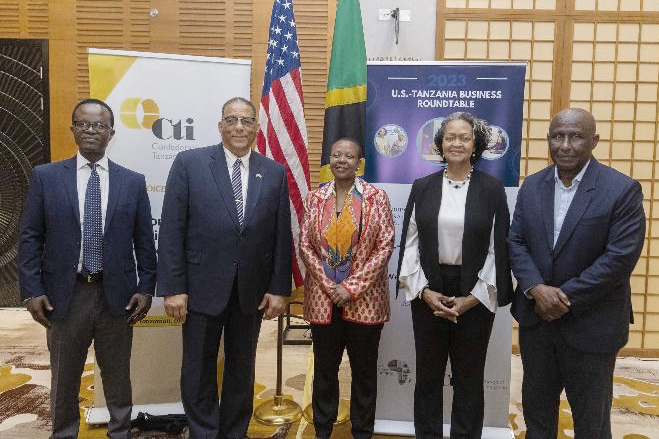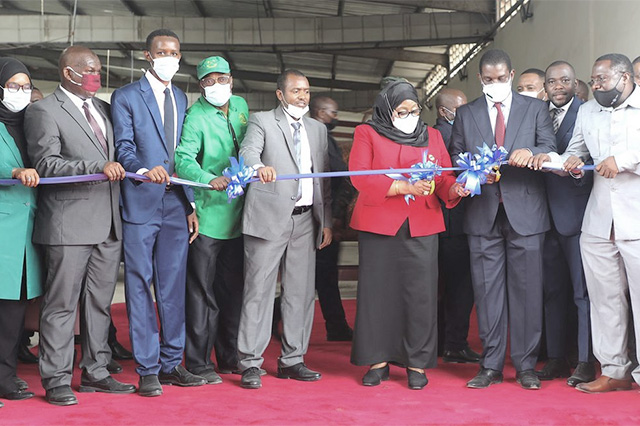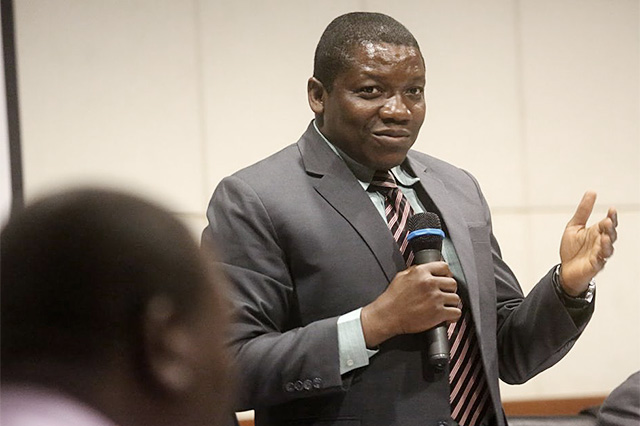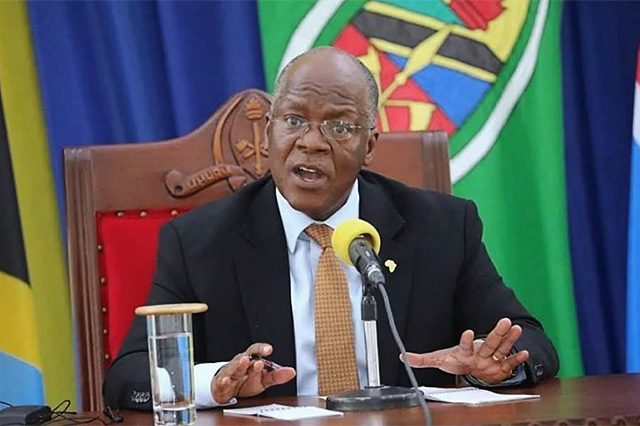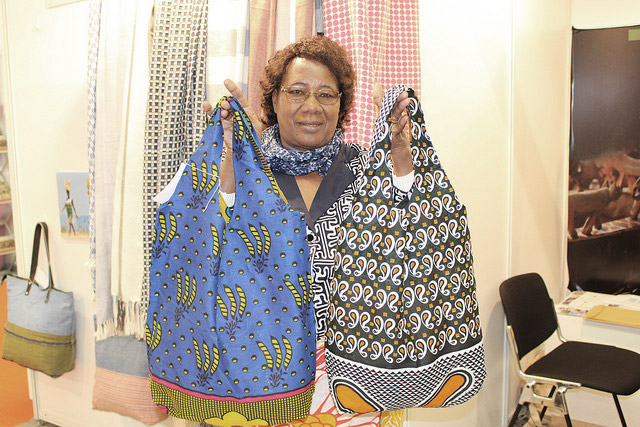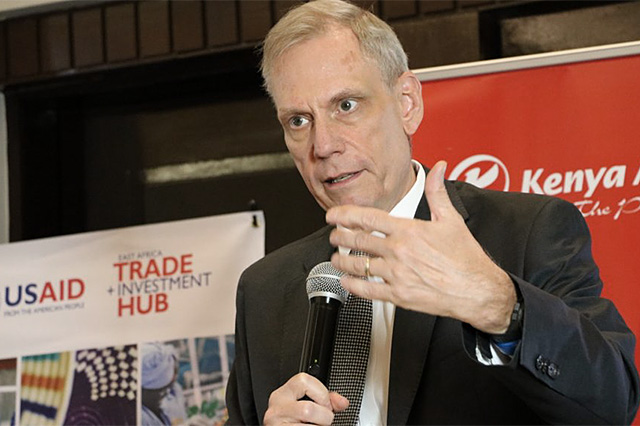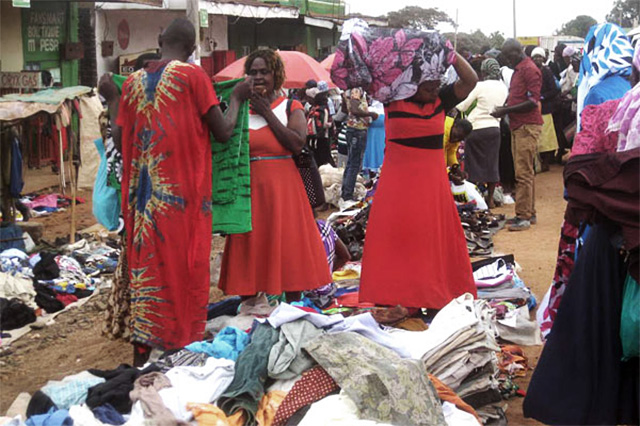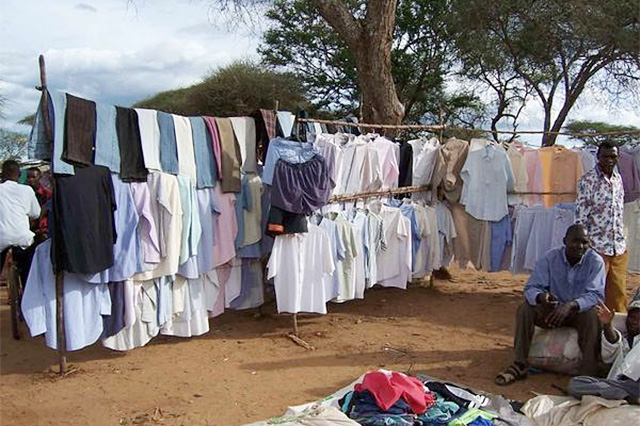Tanzania: Govt. invites more investors to EPZA Areas
The government has encouraged local and foreign investors to take advantage of the investment opportunities under the Export Processing Zones Authority (EPZA).
The Deputy Minister for Industry and Trade, Ms Janeth Mbene, said: "Investors stand a better chance to be successful if they invest through the EPZ and SEZ schemes due to their efficiency in terms of facilitation and incentives package offered."
She said, through the two schemes investors could easily access the global markets including those with preferential trade arrangements with Tanzania like AGOA of the United States, EBA of the European Union, as well as the EAC and SADC markets.
Ms Mbene gave these remarks when she visited the Tanzania Tooku Garments Co. Ltd; a textile industry which is operating at Benjamin William Mkapa Special Economic Zone at Mabibo External, Dar es salaam over the weekend.
The company produces a range of textile products especially jeans and shirts for exports. "Investing in such areas has a lot of benefits; EPZA offers investment land and it operates as a one stop service centre, this is a big advantage to any investor who intends to invest in manufacturing," said Ms Mbene.
She encouraged investors to invest massively through the two schemes and stressed that the government was ready to continue creating conducive investment and business climate in the country.
"I am happy to see that this industry employs a lot of Tanzanians...this is what the government strives to achieve," she noted.
The Tooku Deputy General Manager, Mr Rigobert Massawe, said that their factory produces jeans and T-shirts for export in the United States of America through the AGOA scheme.
"We produce for the US market," he said, adding that they are currently expanding their market to start selling in the United Kingdom. According to the manager, they have so far employed neary 1000 direct employees and the number will increase to 3000 in the coming one year.
Their plan is to increase the number of workers to 15,000 by 2025. Before visiting the textile industry, the Deputy Minister held talks with EPZA officials and assured them of the government's support in their operations.
"I'm highly impressed with the progress made so far by EPZA on fast-tracking the industrialisation process in the country," said Ms Mbene.
She said industrialization is absolutely important for Tanzanian economy as it a crucial means for employment creation, income generation, importation of new technologies, generation of foreign currency as well as promotion of value addition to our local resources.
EPZA Director General, Dr Adelhelm Meru, said that EPZA management was happy to see that the number of local investors in the EPZ and SEZ schemes was speedily increasing.
He said that the increase was a result of an intensive sensitisation campaign which involved conducting meetings with various local authorities. EPZA has so far registered 113 companies which have set up factories at different locations in the country.
These companies have invested over US$ 1.12 billion and have created over 27,000 direct and 100,000 indirect jobs. A total value of exports from industries under the authority has reached USD 700 million.
The authority has earmarked EPZ/ SEZ sites in 19 regions where each site is in the magnitude between 500 - 9000 hectres.
According to available statistics, the contribution of industrial sector to the country's Gross Domestic Product (GDP) rose from 9.6 per cent in 2010/2011 up to 9.9 per cent in 2011/2012.
Direct employment within the sector rose from 115,022 in 2011 up to 120,840 in 2012. Experts say that the EPZ and SEZ schemes will shortly be the key components in the industrial sector contribution to the GDP.



